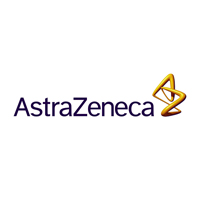AstraZeneca plc (LON:AZN) today announced that Bevespi Aerosphere has been approved in Japan as a fixed-dose, long-acting dual bronchodilator to relieve symptoms in patients with chronic obstructive pulmonary disease.
This is the first approval by the Japanese Ministry of Health, Labour and Welfare for a maintenance fixed-dose, long-acting dual bronchodilator in a pressurised metered-dose inhaler (pMDI), which uses the innovative Aerosphere delivery technology.
The approval was based on positive results from the Phase III PINNACLE 4 trial,1 which demonstrated the efficacy and safety of Bevespi Aerosphere in 1,756 patients with moderate to very severe COPD across Asia, Europe and the US, as well as the broader PINNACLE clinical programme involving more than 5,000 patients.2,3,4
Mene Pangalos, Executive Vice President, BioPharmaceuticals R&D, said: “As the first medicine in its class to be approved in a pressurised metered-dose inhaler in Japan, Bevespi Aerosphere offers an important new treatment option and choice of inhaler device for patients with moderate to very severe chronic obstructive pulmonary disease.”
Bevespi Aerosphere is already approved in the US, EU, Canada, Australia and other countries as a dual bronchodilator for the maintenance treatment of moderate to very severe COPD.
About Bevespi Aerosphere
Bevespi Aerosphere (glycopyrronium/formoterol fumarate) is a fixed-dose dual bronchodilator in a pMDI, combining glycopyrronium, a long-acting muscarinic antagonist (LAMA), and formoterol fumarate, a long-acting beta2-agonist (LABA). Pressurised metered-dose inhalers are an important choice for COPD patients where limited lung function, advanced age and reduced dexterity or cognition are significant considerations for patients to achieve therapeutic benefits from their medicines.5,6 Bevespi Aerosphere is the only LABA/LAMA with Aerosphere delivery technology. Results from an imaging trial have shown that Bevespi Aerosphere effectively delivers medicine to both the large and small airways.7
About the Phase III PINNACLE programme
PINNACLE 1, 2 and 4 were randomised, double-blinded, multi-centre, placebo-controlled trials conducted over 24 weeks, which compared the efficacy and safety of Bevespi Aerosphere administered twice daily via a pMDI to its monotherapy components (glycopyrronium and formoterol fumarate) and to placebo.1,2,3 In PINNACLE 1, open-label tiotropium was included as an active control.2 PINNACLE 3 was a multi-centre, randomised, double-blinded, parallel-group, chronic-dosing, active-controlled, 28-week safety extension trial of PINNACLE 1/2, which evaluated the long-term safety, tolerability and efficacy of Bevespi Aerosphere administered twice daily via a pMDI compared to its monotherapy components.4 All the trials were conducted in patients with moderate to very severe COPD.
About COPD
COPD is a progressive disease which can cause obstruction of airflow in the lungs resulting in debilitating bouts of breathlessness.8 It affects an estimated 384 million people worldwide and is predicted to be the third leading cause of death by 2020.8,9 Improving lung function, reducing exacerbations and managing daily symptoms such as breathlessness are important treatment goals in the management of COPD.8
About AstraZeneca in respiratory disease
Respiratory is one of AstraZeneca’s three therapy areas, and our medicines reached more than 18 million patients as maintenance therapy in 2018. AstraZeneca’s aim is to transform asthma and COPD treatment through inhaled combinations at the core of care, biologics for the unmet needs of specific patient populations, and scientific advancements in disease modification.
The Company is building on a 40-year heritage in respiratory disease and AstraZeneca’s capability in inhalation technology spans pressurised metered-dose inhalers and dry powder inhalers, as well as the Aerosphere delivery technology. The company also has a growing portfolio of respiratory biologics including Fasenra (anti-eosinophil, anti‒IL-5R alpha), now approved for severe, eosinophilic asthma and in development for severe nasal polyposis and other potential indications, and tezepelumab (anti-TSLP), which has been granted Breakthrough Therapy Designation by the US Food and Drug Administration in patients with severe asthma and is in Phase III trials. AstraZeneca’s research aims at addressing underlying disease drivers by focusing on the lung epithelium, lung immunity, lung regeneration and neuronal functions.








































